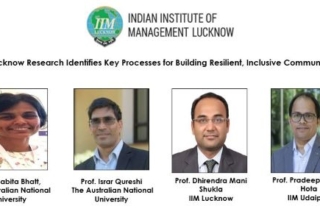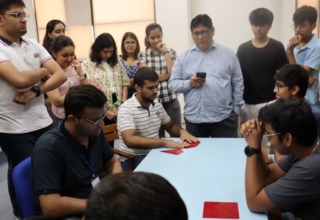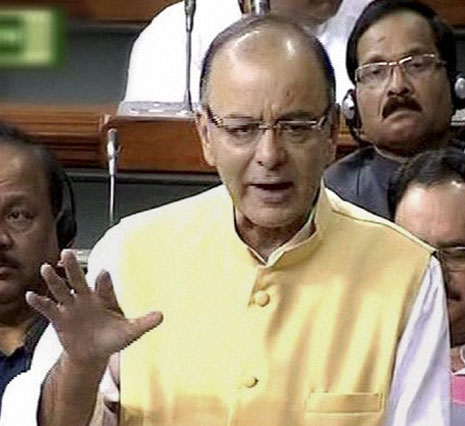
Though proposals related to education sector are well-intentioned and to some extent transformative, yet the thrust on core education as the fuel for knowledge economy appears missing in the union budget for 2016-17
At least part of the narrative around Government budget in the last few years has moved to the ‘unspent’ allocations and though no correction is in sight for now but undercurrents have taken away euphoria that used to be associated with budget ‘announcements’ for decades. A prominent national daily quoting CAG statistics on the day of budget presentation (February 29) highlighted how most ministries under spent allocations in the first nine months of 2015. Down the line in the chain, the situation is more or less similar. So complaining or complimenting about allocations is not enough, question is if outlays were spent and spent well in time.
More than the ministry of finance, it is the concerned ministries, departments and states that need to inculcate fiscal prudence. Through this publication, we have emphasized in the past how insignificant allocations based on norms are made for teacher training, girls hostels under KGBV, etc. For Right to Education monitoring, NCPCR is given a ridiculous amount of Rs 50 per school. Surely, there would be lot more misappropriations and mismatches at micro levels. The point is to devise a unit cost allocation system and bring it in sync with ground realities. The education administrators and its accounts officers need to revisit the system and with expert help try to understand the realistic needs to arrive at a correct demand. Then budgetary allocations would make more sense.
That said, this year’s union budget does recognize education, skill development and job creation as one of the nine pillars for growth of economy. In his budget speech, union Finance Minister Arun Jaitley said, “Our agenda for the next year is, therefore, to ‘Transform India’ in this direction. My Budget proposals are, therefore, built on this transformative agenda with nine distinct pillars. These include: (iv) Education, Skills and Job Creation: to make India a knowledge based and productive society…” adding that after universalisation of primary education throughout the country, we want to take the next big step forward by focusing on the quality of education. Recognizing the quality offered by Jawahar Navodaya Vidyalayas (residential rural schools for gifted students) in the country, the minister proposed 62 new Navodaya Vidyalayas in the budget which will be opened in the remaining uncovered districts over the next two years.
 According to Rohan Joshi, Associate Director, Centre for Civil Society based in Delhi, this is a significant change from previous budget discussions which concentrated largely on building new schools or creating school infrastructure with little to no focus on actual quality of education. One key component in enhancing quality of education is assessments, which do not seem to appear in this year’s budget discussion. This is alarming particularly when MHRD, in previous two budgets, even after allocating a small amount (Allocated budget of INR 50 Crore in 2015-16) for assessments has not managed to fully utilize the allotted funds. As the saying goes, what cannot be measured, cannot be improved. It is important to evaluate quality through large scale assessments before resolving to improve it in the months to come through SSA or any of the other institutions.
According to Rohan Joshi, Associate Director, Centre for Civil Society based in Delhi, this is a significant change from previous budget discussions which concentrated largely on building new schools or creating school infrastructure with little to no focus on actual quality of education. One key component in enhancing quality of education is assessments, which do not seem to appear in this year’s budget discussion. This is alarming particularly when MHRD, in previous two budgets, even after allocating a small amount (Allocated budget of INR 50 Crore in 2015-16) for assessments has not managed to fully utilize the allotted funds. As the saying goes, what cannot be measured, cannot be improved. It is important to evaluate quality through large scale assessments before resolving to improve it in the months to come through SSA or any of the other institutions.
In this budget, Rs 43,554 crore (~3% increase) is allocated for school education, however, considering inflation and GDP growth rate, education budget may come down to lower than last year. Ambarish Rai, National Convenor of RTE Forum is disappointed with the allocation. “We were looking forward to the budget with an increased allocation to education to meet the urgent needs of implementation of RTE Act through sustainable infrastructure of schools, recruitment of trained teachers and timely disbursal of learning materials etc. But this budget has just limited its focus on promoting some skill development programs, setting up of 62 new Navodaya Vidayalyas and launching digital literacy schemes for rural households”.
The allocation on Sarva Shiksha Abhiyan has been increased by only 2.2 per cent and been increased to Rs. 22,500 crore (2016-17 BE) from Rs. 22,000 crore (2015-16 RE). It is still 18.9 per cent lower than the allocation in 2014-15 BE (Rs. 27,758 crore). The allocation on SSA is only 1.14 per cent of the total Union Budget Allocation, which was 1.55 per cent at the 2014-15 BE stage. The allocation for Mid-Day Meal (MDM)s scheme has been increased by only Rs. 463.6 crore, which is an increase of only 5.09 percent from Rs. 9236.4 crore (2015-16 RE) to Rs. 9700 crore (2016-17 BE). The percentage share of MDM in total Union Budget allocation has gone down from 0.74 per cent in 2014-15 (BE) to 0.49 per cent in 2016-17 (BE). “Given the recent amendment on JJ Act, our expectation was the budget for child protection — which is currently less than 0.4% should have been prioritized to strengthen JJ system,” observed Thomas Chandy, CEO, Save the Children.
 As this is the first year of the United Nation’s new development framework — the Sustainable Development Goals — a special focus on education, health and protection of children was necessary.” Looking at the Union Budget from the children’s perspective Save the Children felt that that following the amendment to Juvenile Justice Act (JJ Act), the government should have allocated more funds to the Integrated Child Protection Scheme, instead of decreasing it by 1.3%. This means that promises made in the JJ Act to reform the system would have to wait for another year.
As this is the first year of the United Nation’s new development framework — the Sustainable Development Goals — a special focus on education, health and protection of children was necessary.” Looking at the Union Budget from the children’s perspective Save the Children felt that that following the amendment to Juvenile Justice Act (JJ Act), the government should have allocated more funds to the Integrated Child Protection Scheme, instead of decreasing it by 1.3%. This means that promises made in the JJ Act to reform the system would have to wait for another year.
At the same time, higher education has seen some forward movement in the budget. Rs 28,840 crore (~7.3% increase) is allocated for higher education. ” It is our commitment to empower Higher Educational Institutions to help them become world class teaching and research institutions. An enabling regulatory architecture will be provided to ten public and ten private institutions to emerge as world-class Teaching and Research Institutions. This will enhance affordable access to high quality education for ordinary Indians. A detailed scheme will be formulated, the minister said in his budget proposals. “This is a welcome step towards empowering select institutions of excellence to compete at the global level. An announcement of capital intensive long term plan, on the line of Chinese 985 or Korean Brain 21, would have been more appropriate,” says Kalpesh Banker of Edushine Advisory Group.
Jaitley also conveyed that government has decided to set up a Higher Education Financing Agency (HEFA) with an initial capital base of `1,000 crores. The HEFA will be a 12 not-for-profit organisation that will leverage funds from the market and supplement them with donations and CSR funds. These funds will be used to finance improvement in infrastructure in our top institutions and will be serviced through internal accruals. “ The proposed Higher Education Financing Agency for improvement in infrastructure of education institutions by raising CSR funds in a novel idea to raise funds for this important activity,” says Dhiraj Mathur, Partner and Leader Education, PwC India.
 According to Pearson India’s Deepak Mehrotra, tackling the issue of lack of funds that leads to a large number of students opting out of Higher education, the setting-up of finance agency for higher education could play a key role in giving it the right momentum and contribute to a healthier Gross enrollment ratio (GER) at higher-ed level. “The budget however lacks concrete measures towards building efficacy in the education system and making it more learner-centric. The need of the hour is to improve the quality of Indian education and focus should be on imparting faculty training, building robust assessment framework, more so at school level.”
According to Pearson India’s Deepak Mehrotra, tackling the issue of lack of funds that leads to a large number of students opting out of Higher education, the setting-up of finance agency for higher education could play a key role in giving it the right momentum and contribute to a healthier Gross enrollment ratio (GER) at higher-ed level. “The budget however lacks concrete measures towards building efficacy in the education system and making it more learner-centric. The need of the hour is to improve the quality of Indian education and focus should be on imparting faculty training, building robust assessment framework, more so at school level.”
According to Lakshmi Iyer, Director and Head – Education, Sannam S4 Consulting on the allocation for Education sector, “It is a welcome move that the Government is going to support 10 Private and Public institutions to get to world class standards. It will be interesting to see the process that will be used to select these institutions.”
To help Students, Higher Education Institutions and Employers to access degree certificates of candidates, it is proposed to establish a Digital Depository for School Leaving Certificates, College Degrees, Academic Awards and Mark sheets, on the pattern of a Securities Depository. This will help validate their authenticity, safe storage and easy retrieval.
 “The overall Union Budget for 2016-17 is encouraging and a step forward to Government’s ambitious initiatives like Make in India and Digital India programmes. The Government has laid clear emphasis on integrating the effective use of technology across all the strategic imperatives in keeping with the Digital India initiative,” said Dr Rishi Bhatnagar, Chairperson of the IET IoT Panel & President Aeris Communication. “Digital repository for validation of qualification will provide a great boost to high employment industries like IT,” says Vijay K Thadani, Vice Chairman & Managing Director, NIIT Ltd ,
“The overall Union Budget for 2016-17 is encouraging and a step forward to Government’s ambitious initiatives like Make in India and Digital India programmes. The Government has laid clear emphasis on integrating the effective use of technology across all the strategic imperatives in keeping with the Digital India initiative,” said Dr Rishi Bhatnagar, Chairperson of the IET IoT Panel & President Aeris Communication. “Digital repository for validation of qualification will provide a great boost to high employment industries like IT,” says Vijay K Thadani, Vice Chairman & Managing Director, NIIT Ltd ,
In his budget speech finance minister said, “We want to bring entrepreneurship to the doorsteps of youth through Pradhan Mantri Kaushal Vikas Yojana (PMKVY). We have decided to set up 1500 Multi Skill Training Institutes across the country. I am setting aside an amount of `1,700 crore for these initiatives…. We have decided to set up a National Board for Skill Development Certification in partnership with the industry and academia. We propose to further scale up Pradhan Mantri Kaushal Vikas Yojna to skill one crore youth over the next three years.” In a statement issued by Rajiv Pratap Rudy, MoS for Skill Development and Entrepreneurship reacted saying, “The budget for skill development is highly encouraging for us. As announced, we will be creating 1500 Multi Skill Training Institutes (MSTIs) which will basically be the new generation ITIs set up in PPP mode. So far we have just had standalone government or private ITIs. These will be set up in those blocks and districts of the country which are yet to focus on skill development. We are also certain and committed to achieve our target of skilling 1 crore youth over the next 3 years under the Pradhan Mantri Kaushal Vikas Yojana (PMKVY). In line with this, we are already setting up model skill centres across more than 500 districts in the country. The formation of the National Skill Certification Board is another big step in further strengthening the skill ecosystem. It will see representation from both government and industry, which will collectively enable a joint framework for quality skill assessment. We will work to deliver Entrepreneurship, Education and training in 2200 colleges, 300 schools, 500 government ITIs and 50 Vocational Training Centres. Aspiring entrepreneurs will be connected to mentors and credit markets.”
However, trainers and experts aren’t impressed. “ Government could have brought in some provisions for accelerated deduction of expenses on skill development by corporate and should have exempted income of skilling companies upto a certain limit under section 10 of Income tax Act as that will give impetus to the sector,” feels Sanjeev Duggal, CEO and MD, Centum Learning. In words of Ravi Kiran, Co-Founder, VentureNursery, while the one-day company registration, SC-ST entrepreneurship, are useful, they are not sufficient. Income Tax waiver for 3 years for start-ups, reduction of time frame for long term capital gains to 2 years, waiver of capital gains tax if the gains are invested in Government approved Funds, and if the investment is made by an individual in a company majority owned by him, all look good as head line thoughts, but aren’t meaningful in the real world. Measures to give fillip to start-ups reflect inadequate understanding of the start-up ecosystem by our policy makers. Going a step further Skills education expert Navin Bhatia in his analysis questions the substance in budgetary statements and says, “The government has no policy on capital expenditure in skilling. Our ITIs, ATI, Multi Skill centres and Poly Technics have outdated Skill Labs. After 1990, Government has not spend any money on their up gradation. There is lack of ecosystem to implement the strategy( eg in Skill industry ecosystem of trainers, assessors, apprenticeship, skill Labs , employment linkages is very weak).  Last year under PMKVY scheme ministry of Skill could achieve training & RPL for only 10 lakh youth against a target of 24 Lakhs, how come this year they will be able to achieve a goal of 33 Lakhs when all other things are same.” Citing census data, Bhatia questions organized job creation impetus, “During 1991 census – 26.8 million jobs were in the organized sector in India (including Govt &PSU) & by 2011 census – 29 million jobs were in the organized sector in India(including Govt & PSU) . Country has added 20 lakh jobs in the organized sector in the last 20 year that is one lakh jobs a year. What kind of jobs in the organized sector FM intends to create?”
Last year under PMKVY scheme ministry of Skill could achieve training & RPL for only 10 lakh youth against a target of 24 Lakhs, how come this year they will be able to achieve a goal of 33 Lakhs when all other things are same.” Citing census data, Bhatia questions organized job creation impetus, “During 1991 census – 26.8 million jobs were in the organized sector in India (including Govt &PSU) & by 2011 census – 29 million jobs were in the organized sector in India(including Govt & PSU) . Country has added 20 lakh jobs in the organized sector in the last 20 year that is one lakh jobs a year. What kind of jobs in the organized sector FM intends to create?”
“The budget should have focused more on skill based education at the school level. This would address the current high drop out rates. It would make staying in school relevant and parents would stop pressurising children to drop out and contribute to family incomes. Children will get a first taste of what to expect in a growing market where there is a huge demand for skill based resources,” feels Devika Chadha, VP, Operations, Salaam Bombay Foundation.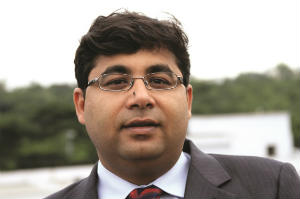 According to Beas Dev Ralhan, CEO, Next Education India Pvt. Ltd., “We strongly believe that skill and aptitude identification and development has to start in schools itself. Teachers also have to be trained accordingly, something that is missed out in this year’s budget.”
According to Beas Dev Ralhan, CEO, Next Education India Pvt. Ltd., “We strongly believe that skill and aptitude identification and development has to start in schools itself. Teachers also have to be trained accordingly, something that is missed out in this year’s budget.”
However several private players see an opportunity in the announcements and have welcomed them. “We are thrilled with the government’s decision to open Multi Skilled Development Institute and Higher Education Financing Agency with 1,000 cr capital.
“As India’s leading education finance company, Avanse Financial Services will be keen to partner with the Government for these initiative,” says Avanse Financial Services CEO, Neeraj Saxena.
At the same time private providers feel left out. As per them the complexity of the Indian educational challenge calls for greater involvement of private sector capital and expertise. However, the budget is silent on measures to further boost private sector investment in the education sector. According to Shantanu Prakash, CMD Educomp Solutions Ltd. private sector should be allowed to contribute as well. “I think that would have provided the much needed fillip to education sector to bridge the gap that currently exists between what is needed and what is available, if we are going to create a new generations of Indians that are ready for the global challenges of the 21st century.” Jasmeet Singh Chhabra, Managing Partner, Cerestra Advisors Limited said “Having stated Education & Skills as a growth pillar, certain concessions around service tax waiver in line with the rest of education sector for education infrastructure providers would have been helpful as well”
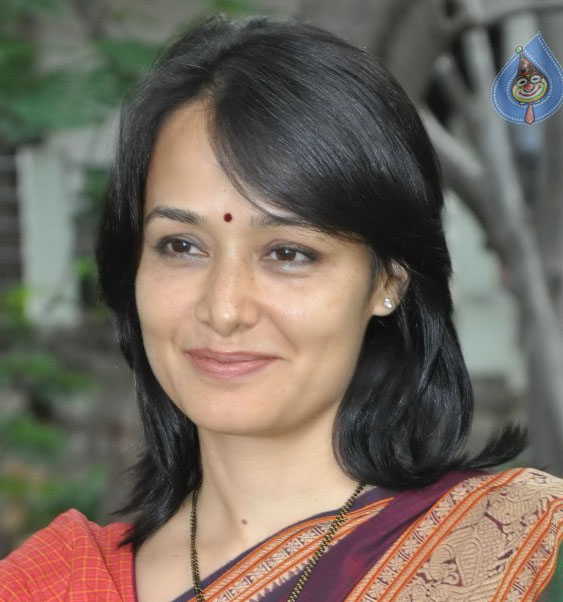 According to Amala Akkineni – Director – AISFM, allocations for education sector, digital education and the push for quality education is an excellent move. However more attention could have been given to Film+media education. The visual media which has dire need of 30 million technicians in the industry in the future, while the education sector budget has not been given any support to create these professionals.
According to Amala Akkineni – Director – AISFM, allocations for education sector, digital education and the push for quality education is an excellent move. However more attention could have been given to Film+media education. The visual media which has dire need of 30 million technicians in the industry in the future, while the education sector budget has not been given any support to create these professionals.
To sum up, while there has been some welcome budgetary support and announcements, the education reforms and commitment to educate children in India is still a distant reality.






